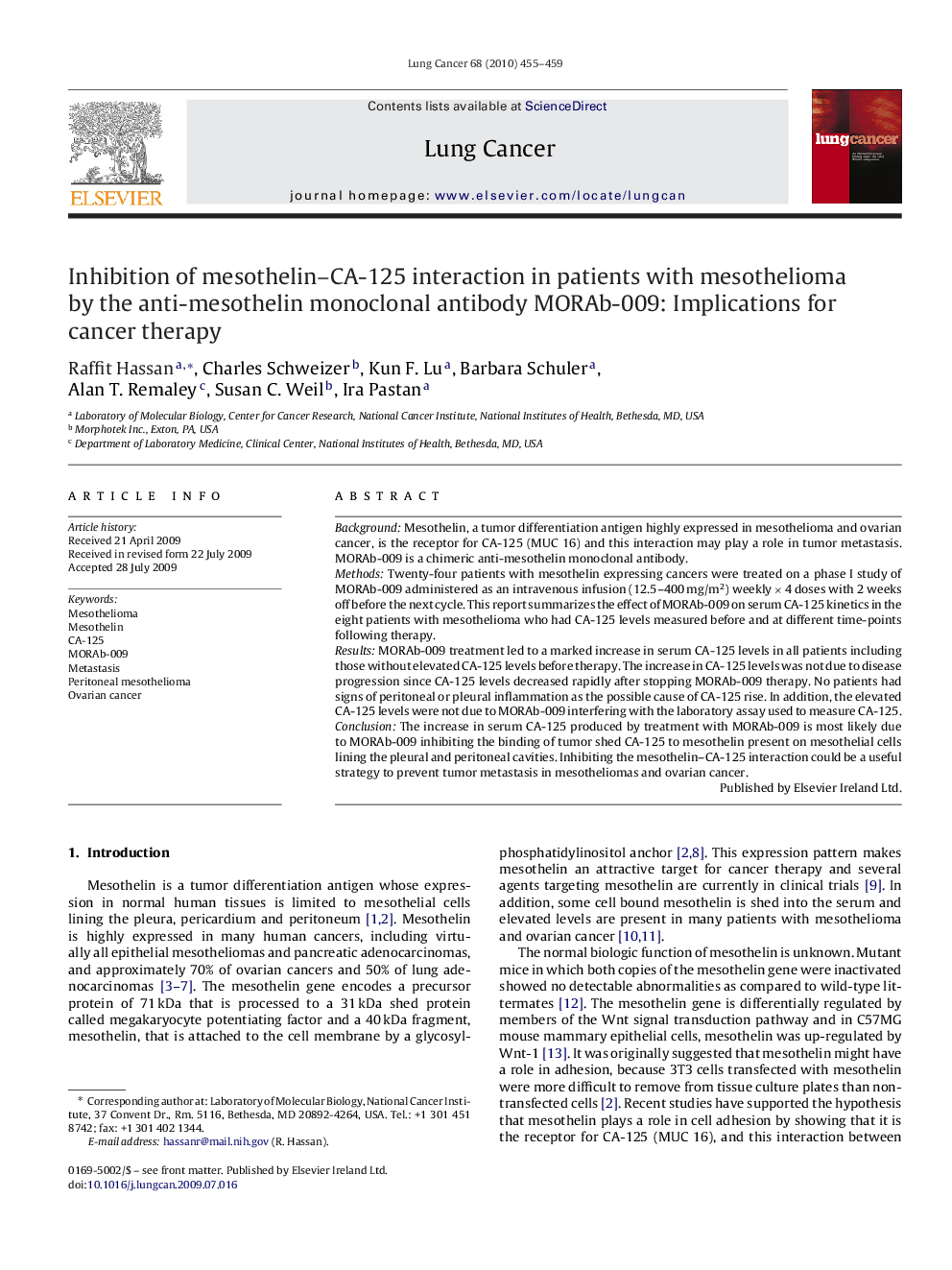| Article ID | Journal | Published Year | Pages | File Type |
|---|---|---|---|---|
| 2142551 | Lung Cancer | 2010 | 5 Pages |
BackgroundMesothelin, a tumor differentiation antigen highly expressed in mesothelioma and ovarian cancer, is the receptor for CA-125 (MUC 16) and this interaction may play a role in tumor metastasis. MORAb-009 is a chimeric anti-mesothelin monoclonal antibody.MethodsTwenty-four patients with mesothelin expressing cancers were treated on a phase I study of MORAb-009 administered as an intravenous infusion (12.5–400 mg/m2) weekly × 4 doses with 2 weeks off before the next cycle. This report summarizes the effect of MORAb-009 on serum CA-125 kinetics in the eight patients with mesothelioma who had CA-125 levels measured before and at different time-points following therapy.ResultsMORAb-009 treatment led to a marked increase in serum CA-125 levels in all patients including those without elevated CA-125 levels before therapy. The increase in CA-125 levels was not due to disease progression since CA-125 levels decreased rapidly after stopping MORAb-009 therapy. No patients had signs of peritoneal or pleural inflammation as the possible cause of CA-125 rise. In addition, the elevated CA-125 levels were not due to MORAb-009 interfering with the laboratory assay used to measure CA-125.ConclusionThe increase in serum CA-125 produced by treatment with MORAb-009 is most likely due to MORAb-009 inhibiting the binding of tumor shed CA-125 to mesothelin present on mesothelial cells lining the pleural and peritoneal cavities. Inhibiting the mesothelin–CA-125 interaction could be a useful strategy to prevent tumor metastasis in mesotheliomas and ovarian cancer.
